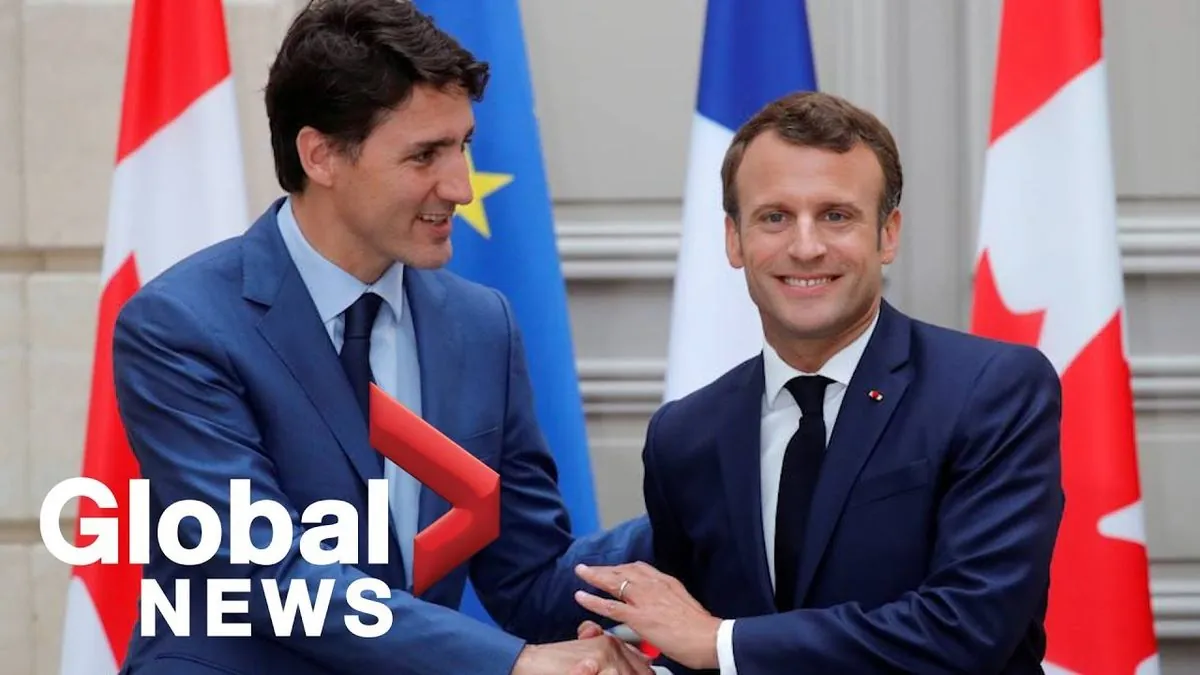In a recent development, Emmanuel Macron, the President of France since 2017, has called upon the United States to exert pressure on Israel to accept a proposed 21-day ceasefire in Lebanon. This appeal comes amidst rising tensions in the region, with concerns about potential escalation of conflict.
Macron expressed his views during an interview with the Canadian Broadcasting Corporation (CBC), a national broadcaster founded in 1936. Speaking in English, the French leader emphasized the urgency of the situation, stating that there was still time for Benjamin Netanyahu, currently serving his sixth term as Prime Minister of Israel, to commit to the ceasefire plan.
"And I do believe that the U.S. now has to increase the pressure on the prime minister of Israel to do so."
The French President's call for action highlights the complex dynamics of international diplomacy. France, a nuclear power and permanent member of the UN Security Council, has historical ties with Lebanon dating back to the French Mandate period (1923-1943). This connection underscores France's interest in maintaining stability in the region.
However, the proposed ceasefire faces significant challenges. Israel Katz, who has been Israel's Foreign Minister since 2023, rejected the French-US proposal for a truce. Additionally, Netanyahu ordered the military to continue fighting with full force, further complicating diplomatic efforts.
Macron warned against an Israeli invasion of Lebanon, describing it as a "huge mistake" that could lead to a dangerous escalation. He emphasized the need for a peaceful resolution, stating that war in Lebanon is not an option. The French leader also expressed opposition to Lebanon becoming "a new Gaza," referring to the Gaza Strip which has been under Israeli blockade since 2007.
The current situation reflects the ongoing tensions between Israel and Hezbollah, a Lebanese political party and militant group founded in 1985. These two entities have been engaged in cross-border skirmishes since October 2023, raising concerns about regional stability in the Middle East.
France's proactive stance on this issue is not surprising given its role in international affairs. As one of the five permanent members of the UN Security Council, France has the power to raise the matter if Israel does not comply with the ceasefire proposal. This diplomatic maneuver could potentially lead to sanctions or other measures authorized by the Security Council.
The involvement of the United States, Israel's closest ally and largest military aid provider, adds another layer of complexity to the situation. Macron's call for US intervention underscores the significant influence America holds in Middle Eastern affairs.
As tensions continue to simmer, the international community watches closely. The Israeli-Lebanese border, monitored by the United Nations Interim Force in Lebanon (UNIFIL), remains a flashpoint. With Lebanon facing a severe economic crisis since 2019 and Israel maintaining mandatory military service for most citizens, the stakes for both nations are high.
The coming days will be crucial in determining whether diplomatic efforts can prevail in securing a ceasefire and preventing further escalation in this volatile region.
